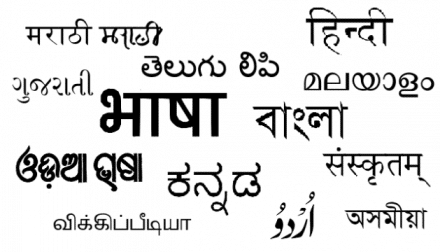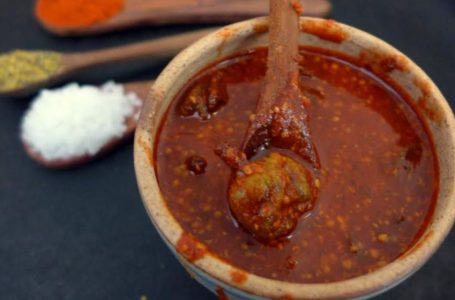Adventures in Nine Languages

It is a great honour to be asked to write the cover story for Made in India. It’s also a cause for butterflies in the stomach. That’s because, with a whopping 22 languages listed in the Constitution as official (the most for any country), India is a linguist’s nightmare (or a dream come true). Of these, I can claim, with varying degrees of pride, fluency in ten. That these have led me into several adventures is the point of this article. I hope you’ll take the plunge as I take you through some of the more memorable ones.
My father was an Armyman, and would be transferred across the country every three years. It meant that I’d have to change schools and hence learn the local language. My mother (and father) tongue is Tamil. All the schools I went to were ‘English-medium’, and the language of the cantonments I grew up in was Hindi, so I could speak all three from the tiniest of ages.
But my affaire premiere was with French. It started in my college days, with a book in my aunt’s house. I borrowed it (and haven’t, shamelessly, returned it yet), and learnt the language in a span of about 60 days. Since my college had a French department, there were a few French-language books in the library. In a year’s time, I’d read through them all. This created a second love-affair, with the comic playwright Jean-Baptiste Moliere (not with a girl; my French hasn’t led to any romance yet). He is sometimes called Shakespeare of the French, but that is by people who want to get into an angry argument with me.
You never forget your first love they say, so the affair with French continues. Over time I’ve both taught French (as a weekend instructor in a dingy classroom run by a shadowy ‘institute’) and done translations (for friends, and not terribly well at that). I’ve even dabbled in poetry, so there are now a few French poems somewhere on the internet for a genuine French person to discover and get her heart broken.
This first affair led to more affairs – Latin, Greek, Swahili, Esperanto, Sanskrit, Ardhamagadhi. But these never had the intensity of my first love. However, my greatest affair with a language started on the streets and local trains of Mumbai. This was with Marathi. When I first moved to Mumbai (after my father retired from the Army), I could never get around to speaking more than a few words. Not when everyone speaks Mumbai’s crazy dialect of Hindi, made famous by Bollywood gangsta flicks.
Where I really learned to speak Marathi was Bengaluru. This was for two interesting reasons. I had gone there to do my masters at the Indian Institute of Science (IISc). Till then, I called myself Tamil, but meeting pukka Tamils from Tamil Nadu put me in clear contrast. My Tamil was nothing like theirs, nor did I know anything of their cinema or literature or music. I had much more in common with Maharashtraians, whose food and music and cinema I know. It led to my hanging out with those guys, and so my Marathi bloomed. In a year’s time, I was – to use an old colonial expression – speaking like a native.
I once fell to speaking with two men in Marathi, and learned that they had come from Belgaum*. After a while they remarked that I spoke very chaste Marathi, of the Pune dialect. If only Belgaum was part of Maharashtra, their language too would have been as good as mine. I was stunned. When I told this to my Marathi friends, they guffawed at the irony. For you see, while I spoke Marathi very fluently, it was so riddled with grammatical errors, that it made them cringe.
My Marathi then had a strong bookish accent. Now while friends are polite about it, strangers often aren’t. I realised this when returning to Bengaluru from a trip to Pune. I had caught an autorickshaw and instructed him in Marathi to take me to the railway station. He insisted on speaking in Hindi, though it was quite broken. I asked him why. He said that since I was not a native Marathi-speaker, I should refrain from hurting his beautiful language!
This taught me one of the hardest things that one comes across when learning a language – you’re an outsider if you can’t get the accent right. I now keep one ear open to grasp the nuances – the little drawls, the tiny contractions, the way a vowel is voiced. Now I can get on in four accents in Marathi. When in Pune I use the Pune accent (somewhat drawled out, and just a little rude); in Mumbai I use the Konkani accent (sharper and more polite). When talking to educated Marathis, I use what I call the Doordarshan accent (somewhat stiff and bookish). In crowded buses and trains I use the Mumbai accent, though it consists mostly of cuss-words.
The last one was of great help in a much unexpected way. While holidaying in Ladakh (if you haven’t been there, you must go before you die), I was trying to call home from a phone booth run by the army. The instrument was faulty and I gave it some choice cusses in Marathi. The phone operator (a soldier) heard this, and reached out to me – turns out it was the first time in months he’d heard his native Marathi. So it happened that two people weren’t lonely for a few minutes, thousands of miles away from home.
This love affair does have its dark side. I speak so fluently (and without errors) that I’m often mistaken for a native speaker. Yet the moment some people get my name (which is very South Indian), the attitude changes. I’m no longer a ‘Maharashtrian’, there’s a feeling I betrayed them; ice descends over everything. It’s hard to argue that I can be a Maharashtrian (in the sense that I was born and live in this state) without being ethnically Marathi, but I persist nevertheless.
(As a complete aside, I’ve managed a thousand words by now, which is, to me, an achievement. But there’s another thousand words, to try the patience of both yours and mine.)
Let’s move on to Kannada, which I learned in Bengaluru. I learned to speak from the people of Bengaluru; reading and writing from the shop-signs. A book I bought to help, ‘Learn Kannada in 30 Days’, was no help at all. You must learn a living language from living people. This language, far more than Hindi or English, has been the most useful language I’ve ever learned. And here’s why-
It lets you connect instantly with the staff of any ‘Udupi Hotel’ anywhere in India. An ‘Udupi Hotel’ is a vegetarian restaurant run by migrants from Udupi district of Karnataka. And the moment someone away from his homeland hears his native language, his attitude changes. In my case, it means I get served better-tasting food!
Once on a journey, my bus stopped for a lunch break at an ‘Udupi hotel’. I was ordering something in Kannada, when the waiter stopped me, “Don’t eat any of this; this is for outsiders only. I will get you proper food.” He brought me some of the stuff the staff kept for themselves, the best-tasting food I’ve ever eaten out of home! Another time, I got a 10% discount because I spoke the language so well. I now speak Kannada at all such joints, and generally I get treated better. So if you’re planning a visit to India, I recommend you learn Kannada rather than any other language. You’ll have food security.
The last language I learned from the fertile soil of Bengaluru is Bangla**. This is because of the large and vocal and argumentative Bengali population of IISc. Strangely, I can get my fingers around a poem by Tagore; I am completely helpless haggling in a bazaar. This is because the company I learned Bangla from comprised mostly of Presidency College alumni arguing fiercely over the meaning of an obscure line in an obscure poem by Nazrul.
This came in useful in a curious situation once. There were these chaps in the office chatting in Bangla. The subject was not Rabindra or Nazrul, but me! I slowly started humming a Bangla tune (tomay sajabo rotone), louder and louder by the minute. The gossip stopped because the gossipers were staring at me, mouths agape. And then the verdict was handed out – there could be no secrets from me, because was there a language I didn’t know? (There are thousands of languages I do not know, but the image helps. People don’t gossip about me where I can hear them and get my feelings hurt.)
So far, I’ve spoken about the languages that are not my mother tongue, Tamil. What is my relationship with it? My answer consists of grinning idiotically or bowing my head. I feel guilty. I’ve never really got very far with it. I can speak and read and write, yes, but that’s it. I can write letters to my grandparents, but I can’t read a newspaper. I don’t know much of the literature or even pulp fiction. Because of Tamil satellite channels, I do know the latest films and music. But in a group of Tamil people, I’d stick out, to use a cliché, like a sore thumb. I might say my mother tongue is English, it comes so naturally to me. I do my thinking in English, and all my writing.
I keep bumping into Tamil speakers wherever I go, often because they’re asking for help. People from Tamil Nadu travel widely, but because most don’t know Hindi (India’s lingua franca), they struggle to communicate. I’ll help you out, but if you try to get chummy with me in Tamil, I resist. It is to me a private language, only for my close and extended family members. And I strongly resent the fake ‘Tamil’ accent of Hindi, used in Bollywood descriptions of South Indians.
Talking of Hindi, that’s a love-hate relationship. I hate it heartily, since it was an instrument of torture in schools. Spoken Hindi is an expressive and lively language; the Hindi taught in schools is pompous and sterile. Nevertheless, I was my school topper in the subject, which I cannot explain even now.
The Hindi I grew up speaking is the Fauji*** dialect. This is a dialect that is spoken almost exclusively in Army cantonments, and has its own accent and vocabulary. In Mumbai (whose ‘tapori’ dialect is unique and famous), people who hear my Hindi think I am a Delhiite. In Delhi, they think I learned my Hindi from books (which is partly true). But if another Fauji child hears me speak, we connect instantly – it makes us part of one tribe (so that’s the love part of my relationship).
Hindi led to Urdu, and to Urdu poetry. Like all Urdu poetry aficionados, I say it is the most poetic language ever. Whether it is a ghazal or a nazm or just a couplet, the language is very rich in expression. They call it nukta – the finest nuances of meaning and metaphor.
(Now I’ve finished my next thousand words. I’m getting tired of writing, and I’m sure you’ll be as tired of reading. One more adventure to narrate and I promise it’ll be over.)
My last adventure is a bizarre one. I was introduced to a Sanskrit teacher, as someone who has learned many languages. “If you learned so many languages, surely you must have learned Sanskrit. Else it is all useless.” Before I could refute her, or call her out for her arrogance, she started speaking in Sanskrit. I had to give back as good as it got (because of male ego and stuff like that). Now I did learn a wee bit of Pali, which was the language of Gautama Buddha. So I replied to her in Pali. For some time, she never realised that we were conversing in two different languages, and instead congratulated me on my masterly grasp of Sanskrit, speaking in obscure words even she hadn’t learned!
I hope you found these adventures funny. I’m trying my way around Konkani, Malayalam and a few more.
Hopefully, it will help add a few more stories to my catalogue of linguistic adventures. Meanwhile, let me end on an interesting note-
In the years just after Independence, there was concern that states should not be formed along language lines. It was thought that it would lead to the breakup of India. Instead, I’m proud to say, Indians have used language as a glue to keep them together. Wherever you go, you’ll meet people who speak not only their mother tongue, but a couple of other languages as well. They’ll probably crack a joke with a multi-lingual pun. And as you join in the guffaws, you’ll be joining in a project that’s helped keep us united these 65 years.
–FINISHED–
* A little politics here – Belgaum is a Marathi-speaking area of Kannada-speaking Karnataka state. Some Belgaumites want it to secede and join the Marathi-speaking Maharashtra state.
** Bangla is the name of the language, Bengali that of the people. Using the names incorrectly irritates Bengalis.
***Politics again, anti-Hindi politicians have prevented it from being taught in the state.
Fauji from Fauj, a word meaning ‘army’ in Hindu and Urdu.





